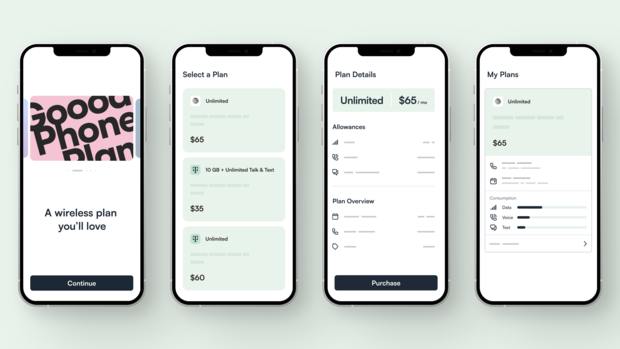Until now, mobile phone tariffs from popular third-party brands such as Aldi-Talk have been complicated to set up and therefore rarely to be found. The German founders Hermann Frank (35) and Dennis Bauer (31) want to change this with their company Gigs. But their vision is even bigger: they are working on a digital platform that would solve the problem of mobile phone distribution worldwide from the network operators.
A provider such as Aldi-Talk would then no longer be exclusively dependent on its previous partner Telefónica. In addition to creating their own tariffs or data offers, companies could also manage the mobile phone contracts of their employees, independently of telecom giants such as Vodafone or AT&T.
A number of investors have now given Gigs growth capital for this, as the Handelsblatt learned in advance. As part of a Series A financing round, around 20 million US dollars were invested in the company with locations in Berlin and San Francisco.
The founders Frank and Bauer were able to attract prominent names from the tech scene: among the donors are Gradient Ventures, a start-up fund of the digital group Google, Dara Khosrowshahi, CEO of the mobility giant Uber, and Max Tayenthal, co-founder of the Digitalbank N26.
Previously, Gigs, which was part of the renowned start-up program Y-Combinator in Silicon Valley in 2021, was financed primarily with the help of convertible loans. With the fresh money, the founders want to expand their team, which currently has around 35 employees, and further develop their own software.
Gigs wants to make telecommunications a service
The self-confidence and the demands of the founders are high. Co-founder and CEO Frank compares gigs with payment service provider Stripe or Amazon’s cloud subsidiary AWS. Similar to these role models, they want to “create” a new service category: Telecom-as-a-Service.
Founder Frank says: “We enable companies to integrate mobile and data tariffs into their own product portfolio and sell them worldwide.” His partner Bauer, who serves as president at Gigs, describes the telecom industry as largely a “closed system” that they want to make more accessible.
The days when companies had to negotiate with network operators for months to resell their services are over, he promises. With gigs, corresponding offers could be created faster and cheaper.
In fact, third-brand tariffs such as Tchibo Mobil or special tariffs from football clubs such as FC Bayern are already possible today, but they are time-consuming to implement and often tied to a network operator. It remains to be seen whether the big players will work in the long term with a start-up that wants to deny them part of their margin.
The previous partners of gigs include, according to company data, the telecom subsidiary T-Mobile, the US telecom giant AT&T or the Spanish Telefónica.









